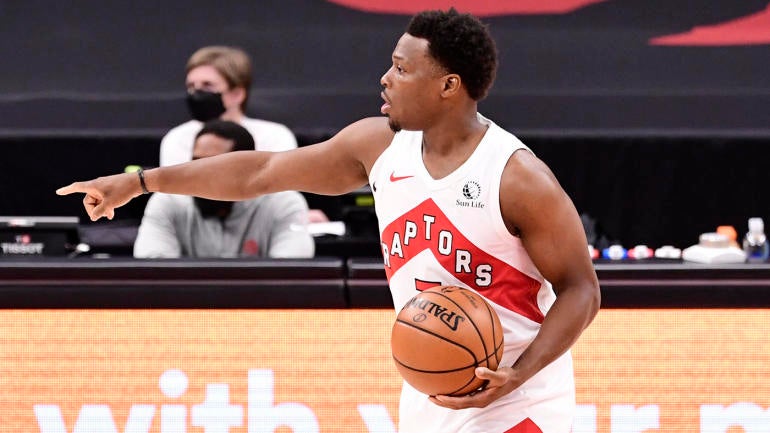
The NBA trade deadline is less than an hour away. Given that both conferences' standings are bunched up in the middle, we don't quite know who the buyers and sellers will be, but the picture is getting a bit clearer. Blake Griffin accepted a buyout and has made his way to Brooklyn, and LaMarcus Aldridge has taken his place next to Andre Drummond on the Shelved Former All-Star Team.
This is a primer for trade season, a list of 60 players who might be moved. It started with 40 names and will be updated and expanded again before the March 25 deadline.
Thanks for signing up!
Keep an eye on your inbox.
Sorry!
There was an error processing your subscription.
Is he available?
There are some players whose names are bound to come up in trade speculation regardless of how adamant their teams are about keeping them. There are other stars and potential stars who might be available at the right price, but are in a more murky place. This is the part of the list with most of the big names.
Washington won eight of 12 games before the break, and it continues to maintain that its franchise player isn't going anywhere. Beal is averaging a league-best 32.5 points on 59.1 percent true shooting. He's 27 years old and started in the All-Star Game. It is understandable that the Wizards want to do everything they can to build around him, especially if he seems content to play out the season before reevaluating things. One has to wonder, though, just what kind of offer would convince them to pivot from their plan. Could they get the same type of package the Rockets got for James Harden? Would they really turn that down?
LaVine is having the best, most complete season of his career and deserved his All-Star spot. Given that he's 25 years old and under contract until 2022, the Bulls should not be in a hurry to trade him. We're just a couple of months removed, however, from LaVine and the front office failing to agree to a contract extension. If Chicago wants to play the long game, it could still potentially sell (extremely) high on LaVine, move its veterans -- more on them later -- and take itself out of the short-term playoff picture. Seems much less likely now, though.
The Raptors' slow start predictably led other teams to surmise that Lowry might be on his way out. They've turned their season around, though, and the type of team most interested in a soon-to-be 35-year-old point guard typically isn't the type of team that can easily trade for a $30.5 million contract. If Lowry informs Toronto that he doesn't plan on re-signing as a free agent, you'd think the front office would try to move him. Otherwise, this remains a mutually beneficial partnership, and there are non-sentimental reasons it could continue beyond this season.
Mark Cuban denied that the Mavericks have even discussed Porzingis with other teams. Rival executives, however, believe that they've explored the idea of trading him, per Bleacher Report's Jake Fischer, and the front office has reached out to the Golden State Warriors to gauge their interest, per SNY's Ian Begley. At his best, Porzingis is the kind of player who would normally be untouchable: A 7-foot-3 dude who makes deep 3s and protects the rim at an elite level. The question is whether or not he can reach that level consistently.
Ideally, the Rockets would have had more than two full months to evaluate Oladipo and how he might fit long term before deciding whether or not to flip him at the deadline. Instead, as a result of a foot injury, they're going to have to figure it out based on a much smaller sample. He has played just 15 games in Houston, just six of them alongside big man Christian Wood, who has been sidelined with an ankle injury. Oladipo turns 29 in May and is on a $21 million expiring contract; potential suitors need to be confident about his health and his willingness to re-sign. Houston entered the break on a 13-game losing streak, so it could be about to blow things up.
You know the story by now: Collins didn't sign a rookie extension, and he'll be a restricted free agent in the offseason. The Hawks acquired center Clint Capela at last year's deadline, big man Onyeka Okongwu in the draft and stretch 4 Danilo Gallinari in free agency, signaling that Collins might not exactly be indispensable. While Atlanta has had a strange season, Collins might have more trade value than he did a few months ago, having shown real improvement as a defender. Teams already know what he can do offensively when the floor is spaced.
Like Collins, Markkanen was eligible to sign a rookie extension before the season and will instead hit restricted free agency. He hasn't played in weeks because of a shoulder injury, but his first 14 games under Billy Donovan represent one of the best stretches of his career. Not only did he shoot 3s more frequently and accurately (39.6 percent on 8.5 attempts per 36 minutes) than ever before, he shot 65.5 percent inside the arc, a drastic improvement. Markkanen's defensive shortcomings remain, though, as do lingering doubts about inconsistency. If Chicago intends to make Patrick Williams a full-time 4, a Markkanen trade -- or a sign-and-trade a few months from now -- is the simplest way there.
Same situation, and Ball was reportedly available in January. Since then, though, he has completely turned his season around. Since the beginning of February, Ball has shot 43.4 percent from 3-point range on eight attempts per game, and the Pelicans' offense has soared, especially when their much-criticized starting lineup has been on the court. Given his continued brilliance as a passer and a defender, perhaps the best move New Orleans could make is not trading him. At the very least, the price has gone up.
As far as 3-and-D guys go, Hart isn't the most accurate shooter out there, but focusing on that misses the point. He's an awesome rebounder for his size, he can defend much bigger players and he can make plays in a pinch. He makes a lot of sense as a long-term piece for the Pelicans, but he'll be a restricted free agent in the summer and they can't pay everybody.
The conventional wisdom is that the Nuggets need Porter to develop into a star or they need to trade him for one. He's 22 years old, with less than 100 NBA games on his resume, including last season's run to the conference finals, in theory the exact type of player who could be the centerpiece of a blockbuster trade offer. If you're on the receiving end of that offer, though, you need to figure out how comfortable you are with his still-glaring defensive issues and his history of back injuries.
Nance doesn't want to hear about your fake trades, but fans of playoff teams will surely continue to construct them. He was one of the best defensive players in the NBA before breaking his finger in early February, and it's no surprise that the Cavaliers' defense has fallen apart without him. The Cleveland Plain Dealer reported that Minnesota, Boston, Philadelphia, New Orleans, Miami and Dallas have inquired about Nance, but the Cavs have maintained he isn't available. With three seasons left on his contract at $11.7 million, $10.7 million and $9.7 million, they should ask for the moon.
Oubre has fully turned his season around after a poor start, but that doesn't necessarily mean his future in Golden State is secure. The Warriors are going to be "aggressive" at the deadline, per Bob Myers, and Oubre is on a $14.4 million expiring contract. This is not the type of team that should be in the business of losing players for nothing, and moving him would mean avoiding the Bird rights trap.
You can make the case that this is precisely the wrong time to trade Bagley, as this is essentially his second season and his first as a full-time starter. There might not even be much interest in him, based on his continued defensive struggles. You could also argue that, since Monte McNair's front office isn't the one that drafted him, the Kings simply need to move on if they can get something of value in return. Given that he doesn't even turn 22 until the middle of this month, there are surely teams that would like to see what he can do with a fresh start. Since he was the No. 2 pick in the draft, though, he's owed $11.3 million next season.
Holmes has said that he wants to stay, but how much are the Kings willing to invest in him? The 27-year-old center is making just $5 million this season, and he's about to get expensive. Sacramento only has Early Bird rights when he hits unrestricted free agency, which in this case effectively means it would have to use cap space to re-sign him. Non-star centers usually aren't in in high demand, but his mobility and ability to finish out of the pick-and-roll make him an exception.
Barnes' perceived trade value has fluctuated along with his and salary and role in recent seasons. In the middle of a career year, it has never been higher. His usage is virtually unchanged from 2019-20, but thanks to substantial increases in his assist rate and free throw rate and a decrease in his self-created midrange shots, he now profiles as the type of player who could be the missing piece for a contender. Barnes turns 29 in May, and he's making $22.2 million, with a declining contract that expires in 2022-23. The Kings probably wouldn't feel great trading him when he's producing exactly the way they hoped, but they need to think a few moves ahead here. The Celtics are in pursuit, per Brian Scalabrine.
Hield's scoring volume and efficiency have declined this season, but he's still seen as one of the league's better on-the-move shooters. It's not clear that the Kings are in sell mode, but if they decide to punt this season, the 28-year-old Hield is one of a few natural trade candidates, particularly because moving him would allow them to put rookie Tyrese Haliburton next to De'Aaron Fox in the starting lineup. His $24.2 million contract makes salary-matching tricky, but that number decreases to $22.2 million next season, $20.3 million the season after that and $18.4 million in 2023-24.
It's complicated
No contract is untradable, as evidenced by the Wizards and Rockets swapping point guards on the second day of training camp. There are several players, however, whose unwieldy salaries make trades particularly difficult to construct, even if their teams are motivated to move them.
Drummond hasn't played since Feb. 12, but his days in Cleveland were numbered the day that they snuck into the James Harden trade and took Jarrett Allen off Brooklyn's hands. There are certainly teams that can use the 27-year-old center, provided that he is as active as he was earlier this season on defense and is willing to accept a significantly smaller offensive role than the one he's been playing. The problem is that he makes almost $29 million and the NBA has rules about salary-matching. Last year, Detroit dumped him to the Cavs for expiring contracts and a 2023 second-round pick. Now Drummond is on an expiring contract, and it's hard to imagine a team giving up real stuff for such an expensive rental.
The 32-year-old Love has barely played this season because of a calf strain, but has practiced with the Cavs recently and could be close to a return. Based on what Love showed in 2019-20, he can still do wonderful things for a team offensively and on the glass. If the price were lower, contenders would be lining up to pry him away. Alas, while his salary isn't quite as high as Griffin's ($31.3 million), his contract is one year longer. Being stuck on a rebuilding team was the risk he took when he signed a four-year extension weeks after LeBron James left for Los Angeles.
The simple part is that Horford is a productive 34-year-old center playing for a rebuilding team. He is one of the main reasons the Thunder have had a positive point differential with their starters on the floor, and teams should no longer be scared off by the season he spent trying to share the frontcourt with Joel Embiid. They'll find it challenging, however, to come up with trades that work for both sides. Horford is making $27.5 million this season and is owed a combined $53.5 million in the two seasons that follow.
It's not that trading Wiggins is likely. It's that it's the simplest way for the Warriors to add a star. In theory, they could package him with the top-three-protected 2021 first-round pick that came with him from Minnesota, or even attach his contract to rookie center James Wiseman. It's unclear if a single player who might be worth relinquishing one of those assets is available, though. (Wiggins' salary is $29.5 million this season and he is owed $33.6 million in 2022-23.)
DeRozan has had an All-Star-caliber season in San Antonio, once again making strides as a passer and, more surprisingly, attempting a couple of 3s a game. The Spurs rarely make in-season trades, and if they're primarily concerned about short-term winning, DeRozan isn't going anywhere. He's on a $27.7 million expiring contract, though, and he's 31 years old. Unless they plan on re-signing him, they have to at least gauge the market.
In that he's a veteran on a $24 million expiring deal, his situation is similar to DeRozan's. Aldridge, however, has decidedly not had an All-Star-caliber season, and now he's been shelved as the team tries to facilitate a trade. He can still shoot, but he can't move the way he used to defensively. His contract has a 15 percent trade kicker, and this could end with a buyout.
He's on an $28.5 million expiring deal, and he's barely been heard from since the end of the 2018-19 season. Porter definitely feels like more of a buyout candidate, but it's worth monitoring how he plays leading up to the deadline. He missed the 15 games that preceded the All-Star break with back spasms.
These guys are magical
Orlando's trade candidates deserve a category of their own. This is a team with an expensive roster and a bleak short-term outlook. One way to ensure this isn't a wasted season is for the Magic to become sellers and completely bottom out, thereby improving the chances that their front office can draft a difference-maker. Even if they don't go full tank mode, they could make a future-focused move or two.
(UPDATE: Magic trade Vucevic to Bulls for Carter, Porter, two future first-round picks)
It seemed like Vucevic's first All-Star season would be the zenith of his career, but now that he's bombing away from long range, he is even better. There are few more skilled bigs in the game, and I'd love to see him on a team that has a chance of going deep in the playoffs. Trading him would be the most drastic move this front office has made, though, and if the Magic want to be competitive, he's probably worth more to them than anybody else, so it's unsurprising that the New York Times' Marc Stein reported they have no interest in trading him. Vucevic isn't particularly comfortable defending in space, and he's making $26 million this season. (His salary declines to $24 million next season and $22 million the season after that.)
(UPDATE: Magic trade Fournier to Celtics for picks)
Fournier is quietly having the best season of his career, taking on more playmaking responsibility because of Orlando's injuries and lack of backcourt depth. Everybody's looking for wings, and his $17.2 million salary isn't that prohibitive, provided that the team acquiring him is prepared to re-sign him. The Magic looked hopeless offensively when he was hurt, though, and prospective trade partners might be skeptical about his ability to perform in the playoffs.
(UPDATE: Magic trade Gordon to Nuggets for Harris, Hampton, first-round pick)
He's always on lists like this. Gordon, 25, is on the second-to-last year of his declining contract, so he's making $18.1 million this season and $16.4 million in 2021-22. He's been out since the beginning of February with a sprained ankle, and before that was pressed into point-forward duty. At his best he's an elite defender capable of guarding almost anybody in the league, and his efficiency would probably increase with a smaller role on a better offensive team. Like Fournier, he's in his seventh year with the Magic.
Ross has settled into his microwave-scorer role, and contenders in need of floor spacing should inquire. He's made 36 percent of his 3s since the Magic traded for him four years ago, but that number is a bit misleading -- he takes some of the most difficult shots in the league. Like Gordon, Ross is on a declining contract: $13.5 million this season, $12.5 million next season, $11.5 million in 2022-23.
Bamba was a project when Orlando selected him No. 6 in the 2018 draft, and he's still mostly a question mark. His per-36 numbers look nice -- 18.1 points, 14.5 rebounds, 2.9 blocks this season -- but he fouls like crazy and he has to prove he can really stretch the floor. Bamba has been unable to hold down a spot in Steve Clifford's rotation, so it might be time to send him to a team that will play him.
One alternative to trading Bamba is making room for him. If Vucevic isn't going anywhere, then perhaps the Magic could move Birch, who has become one of the more reliable bench bigs in the league. I can think of several contenders and second-tier playoff teams that could use a screen-setter, offensive rebounder and rim protector like him. The 28-year-old's foray into the world of 3-point shooting has not started particularly well (he's 4 for 13 from the season), but Birch's improvement from the free throw line (he's shooting a career-high 73.9 percent) might be something.
Need a guard?
If you're looking for backcourt help, these are some shooters and playmakers that could be on the market.
The Rockets should be thrilled with how Gordon, 32, has bounced back from his injury-riddled 2019-20 season. After scoring 18.4 points per 36 minutes on 51 percent true shooting last year, he's scoring a career-high 21.9 points per 36 on 58.2 percent true shooting. This is largely because he's getting to the rim and the free throw line more frequently than he has since 2012-13. All of this means his contract, which pays him $16.9 million this season, now represents great value in the short term. (Signing up to pay him $19.6 million in 2022-23 is another story.) He should be extremely available, based on the direction the team has been going.
For contenders in need of scoring punch, Powell would be a home-run addition. In 86 games from the beginning of the 2019-20 season to this year's All-Star break, he averaged 20.7 points per 36 minutes on 62.3 percent true shooting, and his recent numbers as a starter are even better than that. Toronto could decide to keep him and try to upgrade the roster around the margins for a playoff push, but this comes with risk: Powell is sure to decline his $11.7 million player option next season, and, at 28 years old in a player-friendly market, he will be expensive to bring back in free agency. (There is also a third scenario, in which the Raptors trade Powell in order to upgrade the roster.)
Hill has been out of action since late January because of a thumb injury, but if he returns playing the same way he did at the beginning of the season, he's one of the two or three most obvious trade targets in the NBA. He's an excellent spot-up shooter, a long and versatile defender and, in 14 games with the Thunder, he has made 61.9 percent of his 2s. He turns 35 in May, and he's on a team-friendly contract: $9.6 million this season, with only $1.3 million of his $10 million 2021-22 salary guaranteed.
The sharpshooter/podcaster started the season in a slump and fell out of the Pelicans' rotation in late January, but his shot has returned since then, as he has adjusted to the smallest role he has played since his early days in Orlando. New Orleans has a logjam in the backcourt, so trading a 36-year-old guard on a $13 million expiring contract makes sense. The counterargument, however, is that this roster needs all the shooting it can get.
One of the better under-the-radar signings of the offseason, Temple has brought his brand of veteran savvy to a Bulls team that needed it. He has never been more efficient, but the impact stats really tell the story. Chicago's bench has been one of the best in the league, and the team has been an absurd 17.1 points per 100 possessions better with Temple on the court than with him on the bench, per CTG. Like many teams in the muddy middle, the Bulls have to decide what this season is about. If they want to stay in the playoff mix, they shouldn't even consider trading Temple. If they're thinking long term, they should see what they can get.
His $8 million expiring contract is a bargain, and, even though his minutes are down from last season, he's still playing a significant role. The Clippers know opponents will hunt Williams in the playoffs, though, and if they're looking to solidify the roster, he's by far their most obvious trade piece. There have been rumors about his availability forever, and it seems like nothing -- not the report from The Athletic's Sam Amick that Los Angeles sees him as a pivotal part of the team, not Williams' Instagram comment about this being his "last stop" -- will not put an end to them.
Ellington cooled off after a scorching start, but that might have had something to do with a calf injury that forced him to miss two games in the first week of February. He still finished the first half of the season shooting 43.3 percent from deep on a diet of tightly contested, off-balance shots. Given that Ellington is on a minimum contract, it's much simpler to put together a trade package for him than for, say, Redick. Having already dumped Derrick Rose and reached a buyout agreement with Griffin, the Pistons are obviously sellers.
On the one hand, Mills is a natural trade candidate based on his $13.3 million expiring contract and the fact that he's 32 years old, playing for a team that employs a bunch of younger guards. On the other, he's part of one of the NBA's best lineups and is helping the Spurs outperform preseason expectations. It won't be cheap to pry him away from San Antonio, but some teams will surely try.
Dinwiddie has been eligible for an extension worth as much as $61.6 million over four years since early February, but he could get more than that as a free agent in a few months. The two questions here are how much his skill set is worth to a team that now has three superstars, and how much his Bird rights are worth on the trade market. SNY's Ian Begley reported that the team that drafted (and, later, dumped) Dinwiddie is interested in a reunion.
The Nuggets played some of their best basketball of the season heading into the All-Star break, and Barton was an important part of that. He's been inconsistent this season, though, and he's likely to turn down his $14.7 million player option to become a free agent in a few months. If Denver isn't reasonably confident that it will re-sign him, it has to see what's out there, especially after being blindsided by Jerami Grant's exit.
Harris missed 14 of the Nuggets' 15 games before the break with a thigh injury, and he'll help their perimeter defense when he returns. Like Barton, though, he has been a trade-machine favorite over the past few years. Harris makes $19.6 million this season and $20.9 million next season on a contract that was signed before his 3-point shot abandoned him. For Denver to make an upgrade on the wing, it would likely have to pair him (or Barton) with picks and/or young players.
There is little doubt about Bledsoe's perimeter defense, nor about his effectiveness running spread pick-and-roll. The question is whether or not he can sustain his regular-season production against elite playoff competition, as opponents have ignored him behind the 3-point line in recent years. This season, he has made an encouraging 39.8 percent of his catch-and-shoot 3s, up from 26.4 percent last season, and, more importantly, he has attempted 3.8 of them per game, up from 1.4 last season. If the Pelicans are open to trading him to make room for Kira Lewis Jr. and Nickeil Alexander-Walker, potential suitors have to decide whether or not this represents real improvement. Bledsoe still doesn't have much gravity, and he's not just a rental -- he makes $16.9 million this season, and he's due to make $18.1 million in 2021-22. (In 2022-23, only $3.9 million of his $19.4 million salary is guaranteed.)
Nunn has improved in his second season as a shooter and, more crucially, as a defender, but it's hard to tell whether this is good or bad for his long-term future in Miami. He's on a $1.7 million expiring contract, and he'll be a restricted free agent in the offseason. While he has been an important part of the Heat's turnaround, he's the type of player who could be packaged with a bigger contract in a win-now trade.
(UPDATE: Pistons trade Wright to Kings for Joseph, picks)
Wright has been a nice pickup for Detroit, but he'd be an even better fit on a team with realistic playoff aspirations. While the combo guard is only in his sixth season, he is already almost 29 years old, so he's not quite on the same timeline as Killian Hayes, Saddiq Bey and Isaiah Stewart. He's the kind of player who could come off the bench and completely swing a postseason game, and he's on a reasonable contract ($9 million this season, $8.5 million next season).
Could Burks be moved midseason in three straight years? It's possible! He's made 40 percent of his 3s at decent volume with the Knicks, and they signed him to a one-year, $6 million deal precisely because it would be tradable. Last season, Golden State got three second-round picks for him and Glenn Robinson III. Maybe the Knicks could find a similar deal for Burks and one of their other expiring guys.
Rose's arrival took Rivers out of the rotation, and the Knicks designed Rivers' contract to be tradable: $3.5 million this season, followed by two completely non-guaranteed seasons (at $3.3 million and $3.2 million). His feast-or-famine production in New York isn't all that different from what he's done elsewhere, but there is value in his ability to create shots and, occasionally, catch fire.
Need a forward?
If you have size, strength, speed and shooting ability, you can definitely be a part of somebody's playoff rotation. If you check two or three of those boxes, you can probably be a part of somebody's playoff rotation.
Gay is in the same boat as Mills. He's a productive part of the Spurs' second unit, and he is also 34 years old, on a $14 million expiring deal. You probably don't think of him as a stretch 4, but he's made 41.5 percent of his catch-and-shoot 3s this season.
He doesn't have the name recognition of Horford or Hill, but the 26-year-old forward is an appealing trade target for similar reasons: He's versatile, low-usage role player who hustles defensively and makes winning plays. As a bonus, he's in the first year of a three-year deal worth a total of $6 million, which is as team-friendly a contract as you'll find for a rotation player. Championship-caliber teams need bargains like that, and maybe one of them will make it worth OKC's while to give him up.
McDermott has been unlocked as a driver and off-ball mover in Nate Bjorkgren's system, and a full half of his shots this season have been at the rim. (In contrast, 28 percent of his shots were at the rim last season.) The 29-year-old is a valuable part of what the Pacers are doing, but he's also about to be an unrestricted free agent, and his $7.3 million expiring contract will be attractive to other teams. Given how much long-term money is on Indiana's books, re-signing McDermott might not be realistic.
The 27-year-old forward is theoretically a perfect plug-and-play acquisition for a bunch of playoff teams, especially because he's only making $3.7 million and he's on the books for $3.9 million next year. The problem is that he's shot poorly this season from every area on the floor and he's currently dealing with a knee injury. He might be on the move if the Rockets are doing a full teardown, but this would not be selling high.
Iguodala arrived in Miami at the 2020 deadline, by way of a Grizzlies team he never played for. It was an extend-and-trade deal, which earned him $15 million this season, with a $15 million team option in 2021-22. Like last year, the Heat will likely be looking to solidify their playoff rotation at the deadline, but that salary on an effectively expiring contract means that Iguodala could potentially be on the other end of a trade this time.
Ariza could be this year's Iguodala. The 35-year-old hasn't played an NBA game since last season's shutdown, but he's technically a member of the Oklahoma City Thunder. If he can play at the same level he reached in 21 games for the Portland Trail Blazers last season, then virtually any playoff team can plug him in as a 3-and-D guy. It is unclear, however, if there is an organization out there willing to give up something significant to take on his $12.8 million expiring contract.
The idea of Prince is extremely appealing: A stretch 4 capable of making the odd play off the bounce, a top-tier defender capable of guarding players bigger or smaller than him. The reality, however, is that he has never been quite consistent enough as a shooter or a defender to become the elite role player he had (or has?) the potential to be. The 26-year-old landed in Cleveland in the James Harden trade, and the Cavs might be able to flip him. Prince is on a $13 million expiring contract, though, so he might be more of a buyout guy.
Green doesn't quite fit on this list. He has given the Sixers exactly what they wanted when they acquired him, and he'll likely play an important role in their playoff rotation. Green is here because, if the front office wants to make a major move, his $15.4 million expiring contract would essentially have to be a part of it. Related: There has been both reporting and rumor-mongering about a potential Lowry homecoming.
Need a big?
It seems like any team can find a decent big on a minimum contract in free agency, but there are still teams looking for frontcourt help as the deadline approaches.
Young has been one of the best role players in the NBA this season, finding his niche as a point-center on the Bulls' second unit. This has been a pleasure to watch, especially after seeing his skills go to waste in a terrible offense last season. Chicago has the standard present-vs.-future dilemma to consider here, but it's not as simple as either trading Young or losing him for nothing in a few months. The 32-year-old is making $13.5 million this season, and $6 million of his $14.2 million 2021-22 salary is guaranteed. If the Bulls don't get the kind of offer that makes this an easy call, they can bring him back. If he keeps playing like this, he'll still have positive trade value next season.
Without Harden around to create wide-open corner 3s over and over, Tucker's numbers are down in Houston's new offense. He's still one of the league's strongest and smartest defenders, though, capable of being a stretch 4 or a smallball 5. Low-usage role players who can defend multiple positions can fit anywhere, so there will be a number of teams trying to acquire his $8 million expiring deal.
Another stretch big whose numbers have declined, Bjelica has mostly been shelved this season in Sacramento. And while he doesn't bring anywhere near the same kind of defense as Tucker, he competes on that end and has a more well-rounded offensive game. Primarily, Bjelica is a floor spacer -- he made more than 40 percent of his 3s in each of the three seasons preceding this one -- but he's also a clever passer who can put the ball on the floor when opponents close out hard. He's on a $7.2 million expiring contract.
Muscala has quietly had a solid season as the Thunder's backup center, and there are a few contenders that could use a stretch big. I doubt he gets compared to a Super Bowl MVP this time, though.
This one doesn't feel likely, given that the longtime Hornet -- he was even a Bobcat! -- has been a good fit in the starting lineup and the team is clearly competing for a playoff spot. Zeller is on a $15.4 million expiring contract, though, and that alone means he has to be on this list.
Quietly, Dieng has made the most of his opportunities when he has been in Memphis' rotation this season. If his $17.3 million expiring contract were smaller, there would be all sorts of teams interested in acquiring him just to see whether or not the shooting holds up. In 371 minutes before the All-Star break, he shot 47.9 percent from 3-point range on 4.7 attempts per 36 minutes. That number rises to 52 percent if you remove garbage time and heaves, per Cleaning The Glass.
(UPDATE: Cavs trade McGee to Nuggets for Hartenstein, two picks)
Did you know that only 51 percent of McGee's shots have been at the rim this season? That's down from 80 percent last season with the Lakers, per CTG. He has been doing some truly wild stuff in Cleveland all season, but presumably would go back to being strictly a shot-blocker, screen-setter and lob catcher on a winning team. And the Cavs front office presumably wouldn't ask for much in exchange for his $4.2 million expiring contract.
"trade" - Google News
March 26, 2021 at 01:53AM
https://ift.tt/3ck9liu
NBA trade deadline 2021: Kyle Lowry, Victor Oladipo among 60 players who could be dealt this season - CBS Sports
"trade" - Google News
https://ift.tt/2VQiPtJ


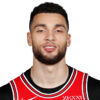

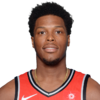

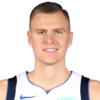

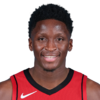

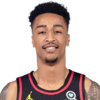

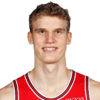
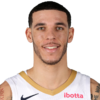

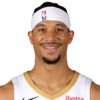
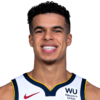

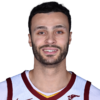

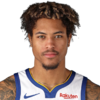

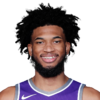

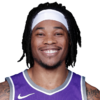

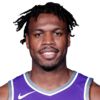
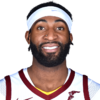
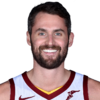
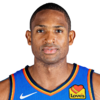

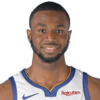
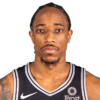

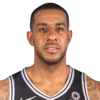
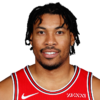

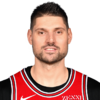
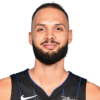

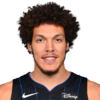

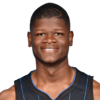
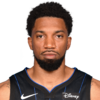
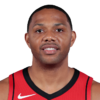

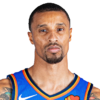

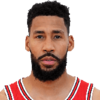


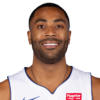

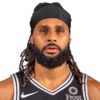
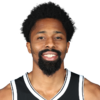

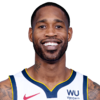
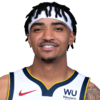
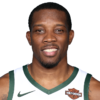
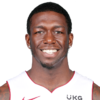


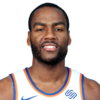

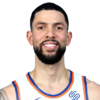
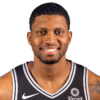
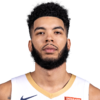
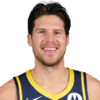

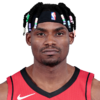
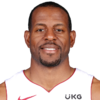
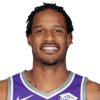
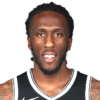
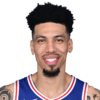

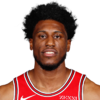
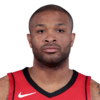

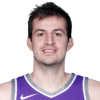
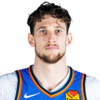
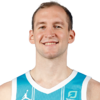



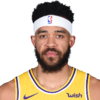
Tidak ada komentar:
Posting Komentar